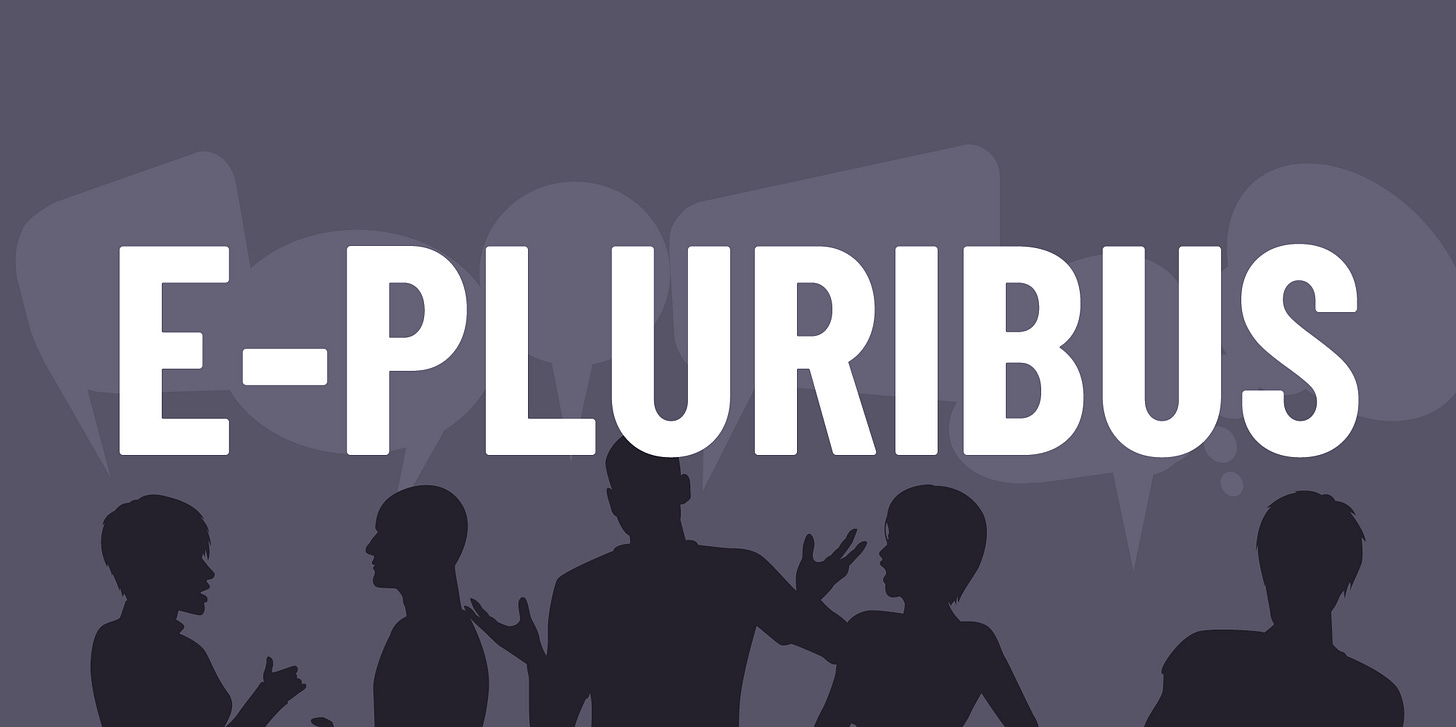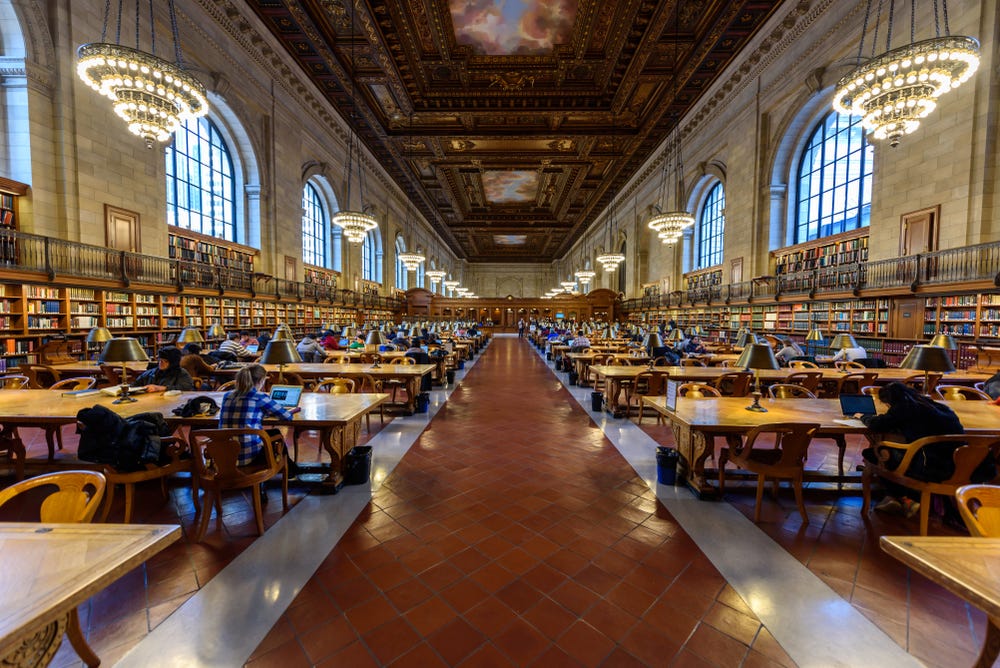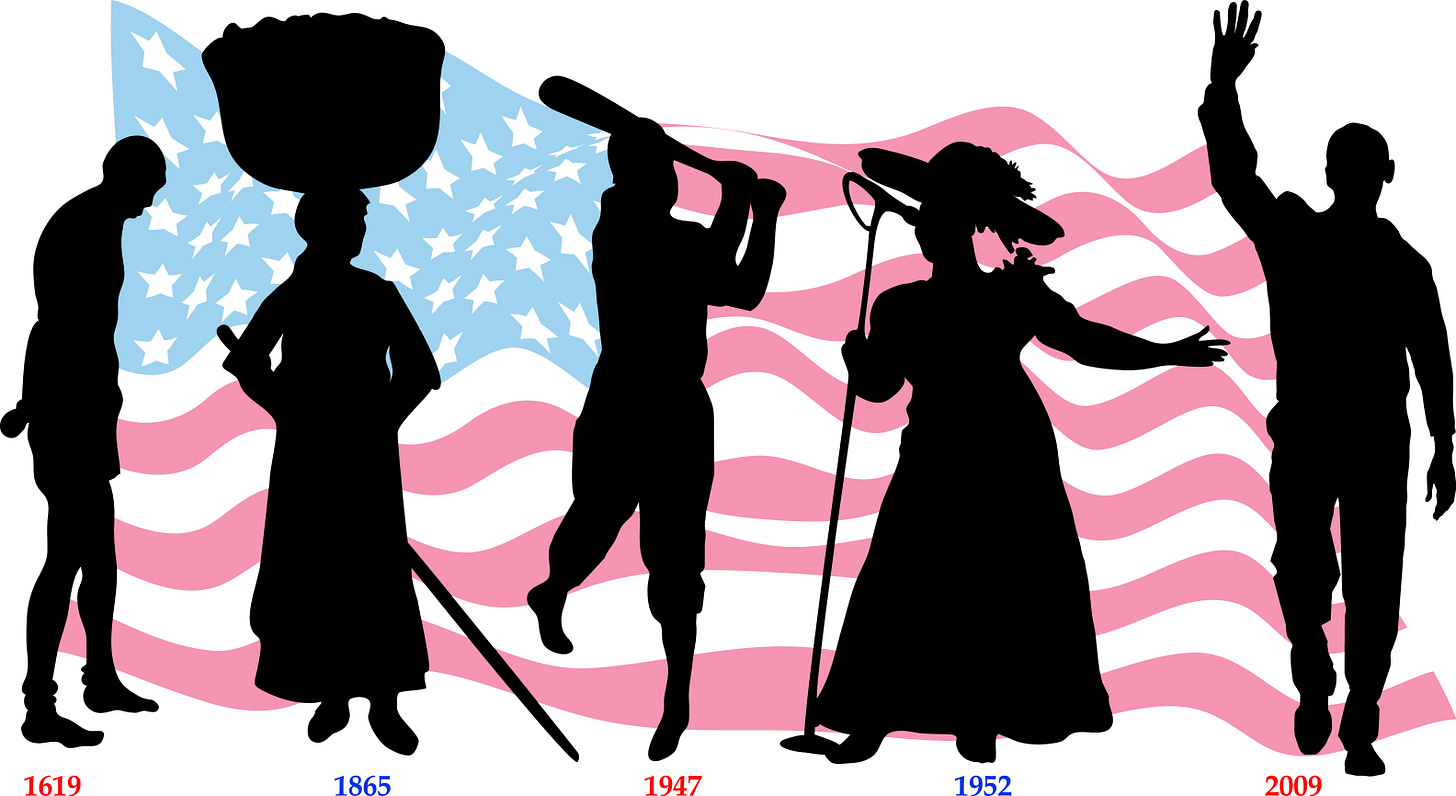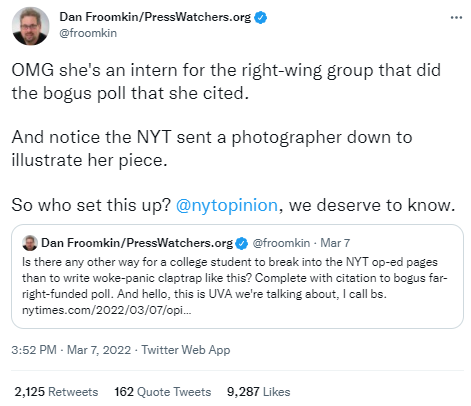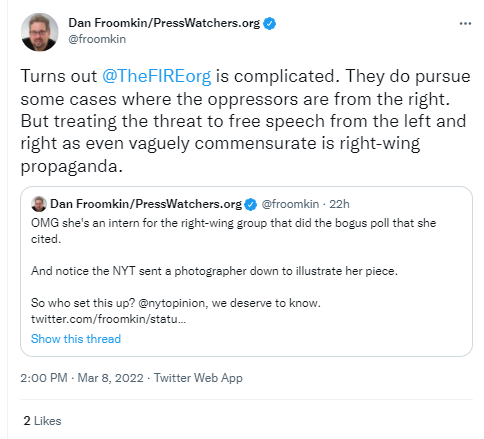E-Pluribus | March 8, 2022
A call for the preservation of library neutrality, "black history" is more than the civil rights movement, and an anti-discrimination measure that discriminates.
A round up of the latest and best writing and musings on the rise of illiberalism in the public discourse:
Stanley Kurtz: The Battle for the Soul of the Library
While acknowledging reasonable disagreement about what should and should not be readily available to all in a library, Dr. Stanley Kurtz of the Ethics and Public Policy Center writes in the New York Times that the neutrality of libraries is fundamental to their function. Librarians who use their discretion to try to promote a political or ideological agenda are betraying the public trust.
What in the world is a woke librarian? After all, through venerable proclamations like the Library Bill of Rights, America’s librarians have long pledged to “provide materials and information presenting all points of view on current and historical issues.” The declaration adds, “Materials should not be proscribed or removed because of partisan or doctrinal disapproval.” This professional stance is known as “neutrality.”
By vowing ideological neutrality in the provision of knowledge, librarians ideally enable readers to develop opinions based on broad consideration of the available alternatives. In contrast, librarians who allow their personal politics to control or curtail the provision of information violate neutrality and betray the public trust. A woke librarian, then, is a contradiction in terms.
[ . . . ]
The story of increasing challenges to library neutrality reflects a broader national pattern of polarization and declining trust in institutions. This story also offers an opportunity: By recapturing library neutrality, we can provide a model for coping with our broader national conflicts.
Library neutrality shares the classically liberal presuppositions that informed America’s founding. Human beings enjoy equal rights. Free individuals can be trusted to make their own decisions about what to read and believe. By promoting the intellectual formation of independent citizens, libraries make liberal democracy possible. Public funding for libraries is still justified on these terms.
[ . . . ]
Setting aside the issue of sexual content, however, the solution for school libraries is clear. Parent groups shouldn’t fight to ban contentious books from the library, even when they don’t make the official curriculum. They should balance controversial books instead. Don’t dump Howard Zinn’s leftist “A People’s History of the United States” from the shelf. Add a real alternative, like Wilfred McClay’s “Land of Hope,” instead. Don’t hurl the “The 1619 Project” out the library window. Instead, add Peter Wood’s “1620” to the library’s collection, along with writings from Robert Woodson’s group, 1776 Unites.
Supporting library neutrality by balancing books is in everyone’s interest. Deep public respect for the traditional library ideal will rightly cut against conservatives who offend against it. The sins of woke librarians do not absolve the excesses of the other side. Nor does purging leftist library books comport with traditional ideals of liberty. Nothing can halt the surging conservative education movement more effectively than its own overreach.
Read it all.
Marcus M. Witcher and Rachel S. Ferguson: Taking the Long View of Black History
At the close of Black History Month, Marcus Witcher and Rachel Ferguson urged readers of Discourse Magazine to avoid confining the history of black Americans to 14 years of the civil rights movement (1954 to 1968), not to mention confining it to a single month on the calendar.
As we conclude Black History Month, we should celebrate the Black organizations and businesses without whose success the civil rights movement would never have been possible. We should absolutely recount the great victories that were achieved for Black equality from 1954 to 1968, but we shouldn’t reduce Black history to this 14-year period. After all, Black civil society institutions such as the church, fraternal organizations and business networks—painstakingly built over time from emancipation to the Civil Rights Act—made the great civil rights victories of the 20th century possible.
Decades before the civil rights movement, Black institutions such as churches, educational organizations and businesses were creating a strong and vibrant African American community. The Black church stands as the “cultural womb” of Black America, a haven that affirmed Black self-esteem grounded in the biblical doctrine of the “imago Dei”—the belief that human beings are infinitely valuable and precious because they are made in the image of God. Developing independently from white oversight, the Black church acknowledged the spiritual leadership of elders, affirmed Black manhood and womanhood and celebrated its own ecstatic forms of worship. As a theologically rich social institution, the spirituality of the Black church inspired the self-discipline, project management and commitment to nonviolence required during the civil rights movement. But it also served as a social hub from which more overtly economic and political networks arose.
Today there is little talk about the amazing efforts by Black Americans during Reconstruction to educate themselves. For instance, the Hampton Institute trained Black educators and helped establish schools across the South. Its efforts resulted in an almost completely unlettered population reaching a literate majority by 1910. One economic historian has called the achievement of so much in such a short amount of time (and with so few resources) an accomplishment “seldom witnessed in human history.”
[ . . . ]
2022 has been another year of celebrating Black History Month by venerating the great achievements of the civil rights movement—and rightly so. But it’s too tempting to treat this movement and its heroes as an isolated event, when in fact, it was the culmination of a long struggle arising from robust Black American civil society institutions.
Read it all here.
Wenyuan Wu: “Test-Blind” Is Another Tool for Discrimination
While some have condemned standardized college tests as tools of discrimination, Wenyuan Wu argues at Minding The Campus that ostensible “test blind” admissions is itself discriminatory. Not only do such policies end up disproportionately affecting Asian American students, these also obscure the underlying problems with K-12 education that leave many students unprepared to thrive in higher education.
[L]ike many other equity-driven social initiatives that filter educational outcomes through a utilitarian, zero-sum lens, the test-blind movement is inherently flawed and deeply discriminatory. When it comes to the University of California (UC), the world’s most comprehensive and advanced postsecondary educational system, the process has translated into quantitatively significant penalties against one particular group of applicants: Asian Americans.
For two consecutive application cycles following the UC’s reform, the number of students admitted to UC Berkeley from the traditional feeder school Lynbrook High has been halved, going from 61 in 2019, to 26 in 2020, and to 22 in 2021. General admissions by Berkeley have also dropped for Henry M. Gunn Senior High, another known feeder school. Both schools are majority-Asian, 85% at Lynbrook and 44% at Gunn High, and both are high-performing schools in the top 5% category in the state in terms of math and reading proficiencies.
[ . . . ]
UC’s precipitous move against merit-based admissions was the result of a settlement in a student-led lawsuit alleging that the SAT and ACT illegally discriminated against low-income and minority students. The claim in the lawsuit is in line with the inflammatory assertion by the National Education Association (NEA) that standardized tests “have been instruments of racism and a biased system.” According to the student plaintiffs, the NEA, and other adherents to the test-free movement, both the race-based disparities in test performance and the broader achievement gaps are caused by systemic racism.
Such a claim simply can’t survive empirical scrutiny. Decades-long research has consistently shown that standardized test scores are accurate predictors for college readiness, student success, and career benchmarks such as bar passage for law school students. Moreover, the observed achievement gaps between different racial groups and between divergent income levels are not a result of racism or intentional discrimination, but of persistent failures at the K-12 level that disproportionately impact underserved students. […]
Read the whole thing.
Around Twitter
Here’s Greg Lukianoff of the Foundation for Individual Rights in Education responding to the overwrought reactions to FIRE intern Emma Camp’s New York Times essay yesterday (item #1):
David French weighs in:
More from Jesse Singal:
Conor Friedersdorf finds some of the criticism of Camp’s essay a bit disingenuous:
And finally, Peter Boghossian with a droll observation on what “gender equality” apparently looks like:



